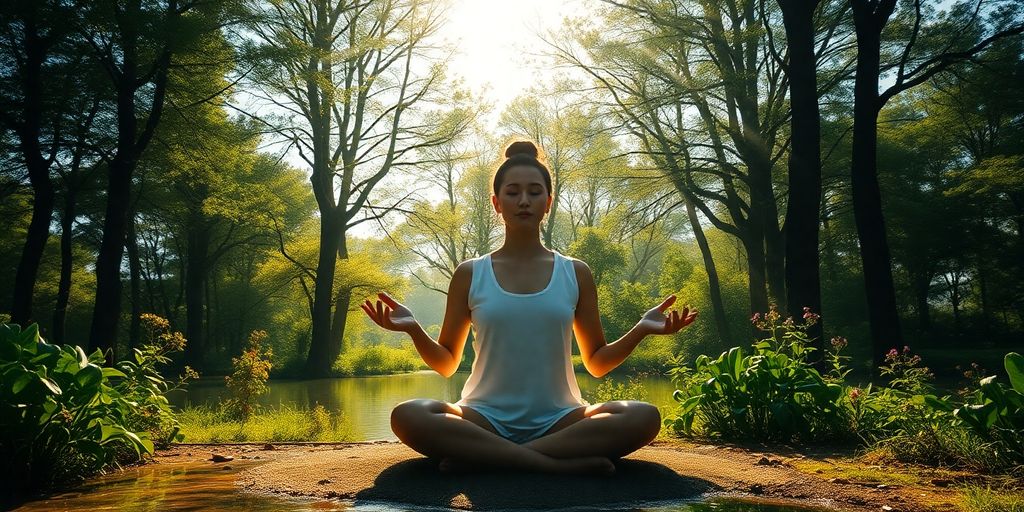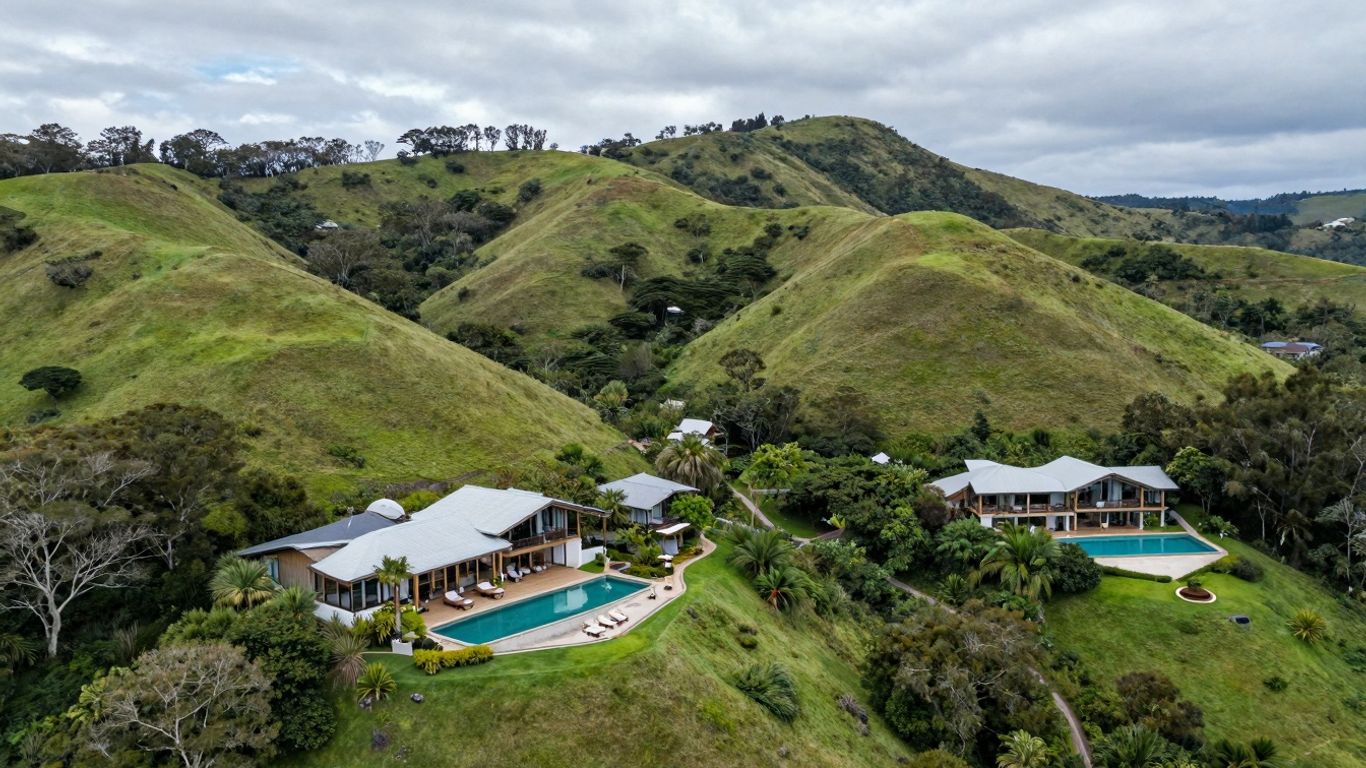In our busy lives, it’s easy to forget that our well-being is more than just physical health. It’s about finding a balance between our body, soul, and mind. This holistic approach looks at how these three elements are connected and how they work together to create a sense of overall wellness. In this article, we’ll explore various aspects of this connection and how we can nurture it to lead healthier, more fulfilling lives.
Key Takeaways
- Holistic wellness combines care for the body, soul, and mind.
- Mental and emotional health are just as vital as physical health.
- Eating well, staying active, and getting enough sleep are key to physical wellness.
- Strong social connections and work-life balance are important for overall well-being.
- Spiritual and financial health significantly impact our quality of life.
Understanding The Triad Of Wellness
The Mind-Body-Spirit Connection
Okay, so when we talk about wellness, it’s not just about hitting the gym or eating your greens. It’s about this whole shebang – mind, body, and spirit – working together. Think of it like a three-legged stool; if one leg’s wonky, the whole thing’s gonna wobble. The mind is all your thoughts and feelings, the body is your physical self, and the spirit is that inner spark, your sense of purpose.
- Your mind affects your body (stress headaches, anyone?).
- Your body affects your mind (ever feel happier after a good walk?).
- Your spirit gives you the ‘why’ – the reason to keep going.
It’s easy to get caught up in just one area, like smashing goals at work or trying to look a certain way. But neglecting the other parts? That’s a recipe for burnout. It’s about finding that sweet spot where everything feels balanced.
How The Three Aspects Interact
Right, so how do these three actually talk to each other? Well, it’s a constant conversation. If you’re stressed (mind), your muscles tense up (body), and you might feel disconnected (spirit). Or, if you’re feeling physically crook (body), it can cloud your thinking (mind) and make you question everything (spirit). It’s all linked! For example, holistic therapies can help you find balance.
Think of it like this:
| Aspect | Example of Impact |
|---|---|
| Mind | Anxious thoughts leading to insomnia |
| Body | Lack of exercise causing low mood |
| Spirit | Feeling lost leading to apathy |
The Role Of Emotions In Wellness
Emotions are the messengers, right? They tell us what’s going on inside. Ignoring them is like turning down the volume on your car’s engine when it’s making a weird noise – it might seem better for a bit, but eventually, something’s gonna blow. Learning to understand and process your emotions is key. Are you feeling stressed about managing finances? Or maybe you’re feeling disconnected from your community? These feelings are important signals.
- Acknowledge your feelings – don’t bottle them up.
- Try to understand why you’re feeling that way.
- Find healthy ways to express your emotions (talking, writing, creating).
Integrating Mind, Body, And Spirit
It’s all about finding that sweet spot where your mind, body, and spirit are all working together, not against each other. It’s not always easy, but when you get it right, you feel pretty good. Think of it like tuning an instrument – when everything’s in tune, the music sounds amazing.
Mindful Awareness Practises
Mindfulness is about paying attention to what’s happening right now, without judging it. It’s easier said than done, I know. But even a few minutes a day can make a difference. Here are some ideas:
- Meditation: Even just five minutes in the morning can set you up for a calmer day. There are heaps of apps to help you get started.
- Deep Breathing: When you’re feeling stressed, take a few deep breaths. In through your nose, out through your mouth. It sounds simple, but it works.
- Body Scans: Lie down and focus on different parts of your body, noticing any sensations. It helps you get more in touch with your physical self.
Mindfulness isn’t about emptying your mind; it’s about noticing what’s there without getting carried away by it. It’s like watching the clouds go by – you see them, but you don’t jump on board.
Holistic Nutrition Approaches
What you eat has a massive impact on how you feel, both physically and mentally. It’s not just about calories; it’s about nourishing your body with good stuff. Consider these points:
- Eat Whole Foods: Focus on fruits, veggies, whole grains, and lean proteins. Avoid processed junk as much as possible.
- Listen to Your Body: Pay attention to how different foods make you feel. Some foods might make you feel great, while others might leave you feeling sluggish.
- Stay Hydrated: Drink plenty of water throughout the day. Dehydration can mess with your energy levels and mood.
Sustainable food practises are becoming more popular in Australia.
Physical Movement And Its Benefits
Getting your body moving is crucial for both physical and mental health. It doesn’t have to be intense; even a gentle walk can make a difference. Here’s why it’s so important:
- Boosts Mood: Exercise releases endorphins, which have mood-boosting effects.
- Reduces Stress: Physical activity can help you blow off steam and reduce stress levels.
- Improves Sleep: Regular exercise can help you sleep better at night.
Here’s a simple table to illustrate the benefits:
| Benefit | Description |
|---|---|
| Mood Improvement | Releases endorphins, reducing feelings of anxiety and depression. |
| Stress Reduction | Provides an outlet for pent-up energy, lowering cortisol levels. |
| Better Sleep | Helps regulate your sleep-wake cycle, leading to more restful sleep. |
| Increased Energy | Improves cardiovascular health, leading to more sustained energy throughout the day. |
The Impact Of Relationships On Wellbeing
Building Healthy Connections
Relationships, eh? They’re like Vegemite – you either love ’em or hate ’em, but you can’t deny they’re a big part of life. Having good mates and family around isn’t just nice; it’s actually good for you. Think about it: who do you call when things go pear-shaped? Who’s there to celebrate the wins, big or small? Those connections are gold.
- Having people you can rely on reduces stress.
- Good relationships boost your self-esteem.
- Sharing experiences makes life richer.
It’s easy to get caught up in work and forget to nurture those bonds. But trust me, making time for the people you care about is an investment in your own happiness. A quick phone call, a coffee catch-up, or even just a text to say g’day can make all the difference.
The Role Of Community
Beyond your inner circle, being part of a community can give you a sense of belonging. Whether it’s your local footy club, a book club, or even just chatting with the baristas at your favourite cafe, those connections matter. It’s about feeling like you’re part of something bigger than yourself. Plus, communities often offer support networks and opportunities to get involved in something meaningful. Consider joining a local footy club to connect with others.
Empathy And Communication Skills
Now, having good relationships isn’t just about finding the right people; it’s also about being a good mate yourself. That means learning to listen, to understand where others are coming from, and to communicate your own thoughts and feelings in a way that’s clear and respectful. Empathy is key – putting yourself in someone else’s shoes can help you navigate tricky situations and build stronger bonds. It’s not always easy, but it’s worth the effort.
| Skill | Benefit |
|---|---|
| Active Listening | Shows you care and understand |
| Clear Communication | Prevents misunderstandings and conflict |
| Empathy | Builds trust and strengthens bonds |
Exploring Spiritual Growth
Spiritual growth is a really important part of feeling good overall. It’s about asking those big questions, finding some peace inside, and feeling connected to something bigger than just yourself. It’s a journey of getting to know yourself better and changing as a person, which can make you feel better mentally, give you a sense of purpose, and help you appreciate the world more.
Finding Purpose And Meaning
Finding your purpose can really change your life. It’s about figuring out what matters to you and what you want to achieve. It might come from overcoming tough times, learning new things, or just from your experiences. Don’t forget that your purpose can change as you grow and your life changes.
Here are some ways to help you find your purpose:
- Think about what you’re good at and what you enjoy.
- Really think about yourself and what’s important to you.
- Try new things and see what clicks.
Feeling grateful, experiencing awe, and doing things for others can also make you feel like you have a purpose. People who volunteer or donate money often feel like their lives have more meaning.
Practises For Spiritual Connection
There are heaps of ways to connect spiritually. Some people like to pray or meditate, while others feel connected by walking in nature or reading inspiring books. The main thing is to find what makes you feel peaceful and connected. Regular meditation practise can bring about significant changes.
Here are some ideas:
- Mindfulness: Pay attention to the present moment without judging it. This can help you feel more grounded and peaceful.
- Meditation: Even a few minutes of meditation each day can make a big difference. There are heaps of guided meditations online if you’re not sure where to start.
- Connecting with nature: Spend time outdoors, even if it’s just in your backyard. Notice the plants, animals, and the sky. Nature can be really calming and inspiring.
The Importance Of Reflexion
Taking time to reflect is super important for spiritual growth. It’s about looking back on your experiences and learning from them. What did you do well? What could you have done differently? What are you grateful for? Budgeting courses in Australia can help you manage your finances effectively.
Here are some questions to ask yourself:
- What are my values?
- What am I grateful for?
- What are my strengths and weaknesses?
- What am I learning from my experiences?
Nature’s Role In Holistic Health

Connecting With The Natural World
Getting outside isn’t just a nice thing to do; it’s actually vital for our overall wellbeing. Think about it – when was the last time you felt truly relaxed and at peace? Chances are, you were somewhere surrounded by nature. Nature has a profound impact on our mental and physical health. It’s more than just a pretty backdrop; it’s an essential ingredient for a balanced life. It can even help with mental health.
Benefits Of Outdoor Activities
There are so many ways to enjoy the outdoors, and each one comes with its own set of perks. Here are a few ideas:
- Bushwalking: Great for cardio and clearing your head.
- Gardening: Therapeutic and provides fresh produce.
- Swimming: Low-impact exercise that’s easy on the joints.
- Picnics: A chance to relax and enjoy good food with friends and family.
Spending time in nature can lower stress levels, improve mood, and even boost your immune system. It’s a simple yet powerful way to enhance your overall health.
Eco-Conscious Living
Living in harmony with nature isn’t just about spending time outdoors; it’s also about making conscious choices that protect the environment. This can be as simple as reducing your waste, using less energy, or supporting sustainable businesses. Here’s a quick look at some ways to be more eco-friendly:
| Action | Benefit |
|---|---|
| Reduce, Reuse, Recycle | Less waste in landfills |
| Conserve Water | Protects water resources |
| Use Public Transport | Reduces carbon emissions |
| Buy Local | Supports local farmers and businesses |
By making small changes in our daily lives, we can have a big impact on the planet and our own spiritual well-being.
Financial Health And Its Influence
Managing Finances For Peace Of Mind
Let’s be real, money worries are a huge drag. Getting a handle on your finances isn’t just about having more cash; it’s about feeling more in control and less stressed. It’s about being able to sleep at night without constantly thinking about bills. I’ve found that even small steps, like tracking my spending for a week, can make a big difference. It’s surprising where your money actually goes!
- Create a budget (and stick to it, mostly).
- Automate savings, even if it’s just a little bit each pay.
- Review your expenses regularly and cut what you don’t need.
Financial planning isn’t just for rich people. It’s for everyone who wants to feel more secure and less anxious about their future. It’s about making smart choices today so you can have more options tomorrow.
The Stress Of Financial Worries
Financial stress can seep into every corner of your life. It can affect your relationships, your work, and even your physical health. I know people who are constantly arguing with their partners about money, and it’s heartbreaking. It’s like a dark cloud hanging over everything. The affordability of repayments is a big issue for many Aussies, and it’s no wonder people are stressed.
Creating A Sustainable Budget
Budgeting doesn’t have to be a nightmare. Think of it as a way to see where your money is going and make sure it’s aligned with your values. A sustainable budget is one you can actually stick to, not some restrictive plan that makes you miserable. Here’s a simple approach:
- Track your income and expenses: Use an app, a spreadsheet, or even just a notebook.
- Set realistic goals: What do you want to achieve? Save for a house? Pay off debt? Travel?
- Prioritise your spending: What’s really important to you? What can you cut back on?
| Category | Amount | Notes |
|---|---|---|
| Housing | $1,500 | Rent/Mortgage |
| Food | $500 | Groceries + Eating Out |
| Transportation | $300 | Car payments, public transport, petrol |
| Entertainment | $200 | Movies, concerts, hobbies |
| Savings | $500 | Emergency fund, investments |
Mind-Body Therapies For Wellness

The Benefits Of Yoga And Meditation
Yoga and meditation are fantastic tools for connecting your mind and body. They’re not just about stretching or sitting still; they’re about tuning into what your body is telling you. I’ve found that even a short session can make a huge difference to my stress levels. It’s like hitting the reset button on a busy day. Plus, there are so many different styles to try, from gentle Hatha to more intense Vinyasa, so you can find something that suits you. Meditation can be as simple as focusing on your breath for a few minutes each day.
Exploring Alternative Therapies
There’s a whole world of alternative therapies out there that can complement traditional medicine. Things like acupuncture and traditional Chinese medicine have been around for centuries, and people swear by them. I know a few people who’ve had great results with massage therapy for chronic pain. It’s worth doing your research and finding a qualified practitioner if you’re curious. Just remember, it’s all about finding what works for you and your body.
Integrating Conventional And Holistic Practises
It’s not about choosing one over the other; it’s about finding a balance that works for you. I think the best approach is to see your GP for regular check-ups and then explore holistic therapies to support your overall wellbeing. For example, if you’re dealing with anxiety, you might see a therapist and also try mindful awareness practises like meditation or yoga. It’s about creating a well-rounded approach to your health.
Finding the right mix of conventional and holistic practises can take time and experimentation. Don’t be afraid to try different things and see what resonates with you. The goal is to create a personalised plan that supports your unique needs and helps you feel your best.
Here are some ways to integrate both:
- Talk to your doctor about your interest in holistic therapies.
- Research qualified practitioners in your area.
- Start small and gradually incorporate new practises into your routine.
- Listen to your body and adjust as needed.
Wrapping It Up
So, there you have it. The connection between our mind, body, and spirit isn’t just some fancy idea; it’s a real thing that can change how we live. When we take the time to look after all three parts, we can feel more balanced and fulfilled. Whether it’s through meditation, eating well, or spending time in nature, there are plenty of ways to bring these elements together. It’s all about finding what works for you and making it a part of your daily routine. Remember, this journey is personal and ongoing. So, let’s keep exploring and nurturing ourselves, one step at a time.
Frequently Asked Questions
What does it mean to connect the mind, body, and spirit for overall wellness?
Connecting the mind, body, and spirit means finding ways to keep these three parts of ourselves in balance. It involves practises that help us feel good mentally, physically, and spiritually.
How can mindfulness help in connecting the mind, body, and spirit?
Mindfulness practises like meditation and deep breathing help us focus on the present moment. This can create a stronger link between our thoughts, feelings, and physical sensations.
Why is spiritual growth important for overall well-being?
Spiritual growth helps us find purpose and meaning in life. It can involve practises like meditation or spending time in nature, which can make us feel more connected to ourselves and others.
How do relationships affect our well-being?
Healthy relationships with family and friends can improve our emotional health. They provide support and help us feel connected, which is important for our overall happiness.
What role does nature play in our health?
Spending time in nature can boost our mood and reduce stress. Activities like walking in the park or gardening can help us feel more relaxed and connected to the world around us.
How can managing finances improve our well-being?
When we manage our money well, we feel less stressed about unexpected expenses. This can lead to a greater sense of control and peace of mind, which is important for our overall health.





